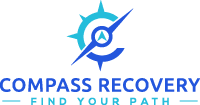 First impressions are everything. That’s why we at Compass Recovery want all patients to feel at ease as soon as they enter our facility. We understand the courage it takes for people with substance abuse disorders to admit that they need help, much less actually making it to a recovery center. We want to make the admissions process as efficient and painless as possible. Our admissions services personnel pride themselves on treating each patient with dignity and compassion — we understand that addiction is a disease, not a moral failing.
First impressions are everything. That’s why we at Compass Recovery want all patients to feel at ease as soon as they enter our facility. We understand the courage it takes for people with substance abuse disorders to admit that they need help, much less actually making it to a recovery center. We want to make the admissions process as efficient and painless as possible. Our admissions services personnel pride themselves on treating each patient with dignity and compassion — we understand that addiction is a disease, not a moral failing.
So, what exactly does our rehab admissions process look like?
Compass Recovery Admissions Services
When you arrive at our Agawam, MA, facility, our admissions services staff will ensure that your entrance into our program is as seamless as possible. The admissions services team will explain your program’s regulations and expectations and make sure that you are comfortable every step of the way. Next, they will confirm that your insurance provider is correct and ensure that all of your questions are answered. Then, new patients meet with their addiction counselors.
What Can I Expect After the Admissions Process?
After our admissions services team completes your entry process, our counselors will evaluate you mentally and physically so that they can design a personalized treatment plan to fit your individual needs. This is an essential step in the process because it helps us ensure your safety during treatment. At Compass Recovery, our counselors pride themselves on the fact that they recognize you as an individual, not a face in the crowd. Before they design your plan, they will ask about your reasons for entering a treatment program, your history with substance or alcohol abuse, and your goals for treatment. Your answers will become the foundation of your treatment plan.
Addiction Treatment Services Offered at Compass Recovery
Compass Recovery specializes in two main types of treatment programs: a partial hospitalization program (PHP) and an intensive outpatient program (IOP). These two programs differ based on the individual needs of our patients.
- Partial hospitalization program – This kind of program allows our clients to attend essential treatment sessions at our facility and then go home at the end of each day. A partial hospitalization program is designed for clients that recognize that they need help for their substance abuse disorders but don’t have the time or money to commit to a traditional rehabilitation facility. The American Society for Addiction Medicine (ASAM) outlines a partial hospitalization program as a treatment delivered at a minimum of five hours a day, five days a week, for a period of two weeks up to an entire month.
- Intensive outpatient treatment – This kind of program gives patients the chance to continue their daily routines in a way that conventional residential treatment programs do not. Intensive outpatient treatment is for patients who can control their addiction enough to continue their daily lives. ASAM defines the level of care for an intensive outpatient treatment program as a minimum of three hours a day, three days a week, for up to two months.
After we have learned more about you, our substance abuse counselors will create your individualized therapy plan. We offer these therapy options:
- Cognitive-behavioral therapy – Cognitive-behavioral therapy helps patients change their negative self-image, which can be detrimental to the recovery process. This therapy type also helps curtail negative thinking, a common symptom in patients with substance abuse disorders.
- Dialectical behavior therapy – This therapy is used in conjunction with cognitive- behavioral therapy and is designed so that patients will learn positive strategies to deal with the stress of everyday life. Also, dialectical behavior therapy helps patients to regulate their emotions. Emotion regulation can lead to fewer relapses due to despair or anger.
- Motivational interviewing – Motivational interviewing teaches patients to be practical and empathetic in order to come to terms with their insecurities.
Reach Out to Compass Recovery to Learn More
Substance abuse can lead a person to hit rock bottom. At Compass Recovery, we understand precisely how difficult it can be. The first step on a potentially life-changing journey is reaching out. If you or a loved one is struggling to beat a substance abuse or alcohol addiction disorder, Compass Recovery has counselors who are available now and are ready to answer any questions that you may have about our programs. For more information, complete our secure online form or call us at 844.844.2988.
